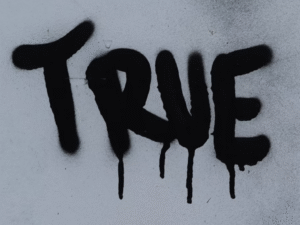
Transgression and Shame: Writing What You’re Not Supposed To
Transgression isn’t provocation. It’s not about being edgy. It’s about truth-telling when every instinct screams “don’t.” It’s the line that makes your

Lizzie Kemball (Guest Blog Post)
The on-again-off-again lockdowns since March have led me to feel new ways about both writing and reading. Sure, I am an English Literature and Creative Writing graduate, now studying a Master’s in Creative Writing – clearly, I love books (reading or writing them). But, never have they felt so fundamental to keeping myself sane or connected to others.
I didn’t polish off a draft of a new novel in lockdown, nor did I read a book a day like some people. Instead, I learnt to enjoy books for the lives they let us experience, and writing for the lives it lets us live. Rather than caring about the literary merit of whatever I was going to pick up next, I chose books that made me feel alive and less alone. Even in a house full of other people, lockdown had the unique ability to make a lot of very typically content people feel lonely. I’ve never had as many people ask me for book or poetry recommendations as I did over the lockdown period. Through this, I found that what most people wanted – although varying in genre and style – was something that allowed them to escape. It’s no secret that reading and writing is a form of escapism, that through reading we get to view lives we never would otherwise. Through books we could pretend for a little while that we were in a world not quite so terrible, or not quite so dull, or not quite so loud as our own. In lockdown this was amplified.
Though a book lover before, I’d never felt this huge connection to so many other people turning to the exact same source of pleasure, all of us following this unknown need to read. There is something deeper than this though, as Alberto Manguel puts it: ‘Maybe this is why we read, and why in moments of darkness we return to books: to find words for what we already know.’. Sometimes, when everything around us is too overwhelming, too confusing for us to ever fathom understanding on our own terms, we can use the thoughts of others to help us hold the ideas for a little while – toy with them – and then perhaps even understand them. Learn the darkness through what we touch rather than what we see.
And with all of these new and old words in my head I wrote. Wrote some more. Sporadically, badly, stupidly, and occasionally well. I wrote poems and stories that let me see through another person’s eyes for a little while, or let me be outside with others, touching them and exploring and doing all the things I couldn’t do inside. It became a new sort of therapy. I could pretend whilst sitting at the keyboard, or hunched over a notebook, that everything was okay. Or at least that everything was different. Through the page I would hold my partner again – no miles separating us. In a stanza I would find myself far from the red-brick walls of my home, in a deep forest, staring at the stars. In flash fiction I was in a museum with other people, watching their unmasked faces. Lockdown has taught me that writing isn’t a hobby, nor a career – although it is also both – writing is the lens I need to use to see the world, to process everything around me. Without it, it is like looking down the road at night without my glasses, my Astimatic eyes making starburst out of the car lights and streetlamps – everything unclear.
In the words I wrote I also found a pattern: a need to write a better world than the one I was experiencing. Something that felt more hopeful. I’ve seen similar patterns in the work others were producing. Words full of new worlds, with moral people and an imagined tomorrow that felt better than today. As Malala Yousef said, ‘Let us remember: one book, one pen, one child, and one teacher can change the world.’ We all need that sometimes, the conviction that what we write and what we read could change everything. That we have the power to make it better. That perhaps all it takes is a good book.

Transgression isn’t provocation. It’s not about being edgy. It’s about truth-telling when every instinct screams “don’t.” It’s the line that makes your

Samuel Beckett’s Waiting for Godot is back on stage, and in a world still teetering on absurdity, it couldn’t be more relevant.

This July, Liverpool Arab Arts Festival dives headfirst into nostalgia, not the sepia-tinted kind, but something raw, defiant, and deeply political. “In
The Broken Spine is a poetry and arts collective proudly published on the coastal edge of North-West England. Founded in 2019 by Alan Parry and Paul Robert Mullen – two school friends reunited after twenty years through a mutual love of poetry.